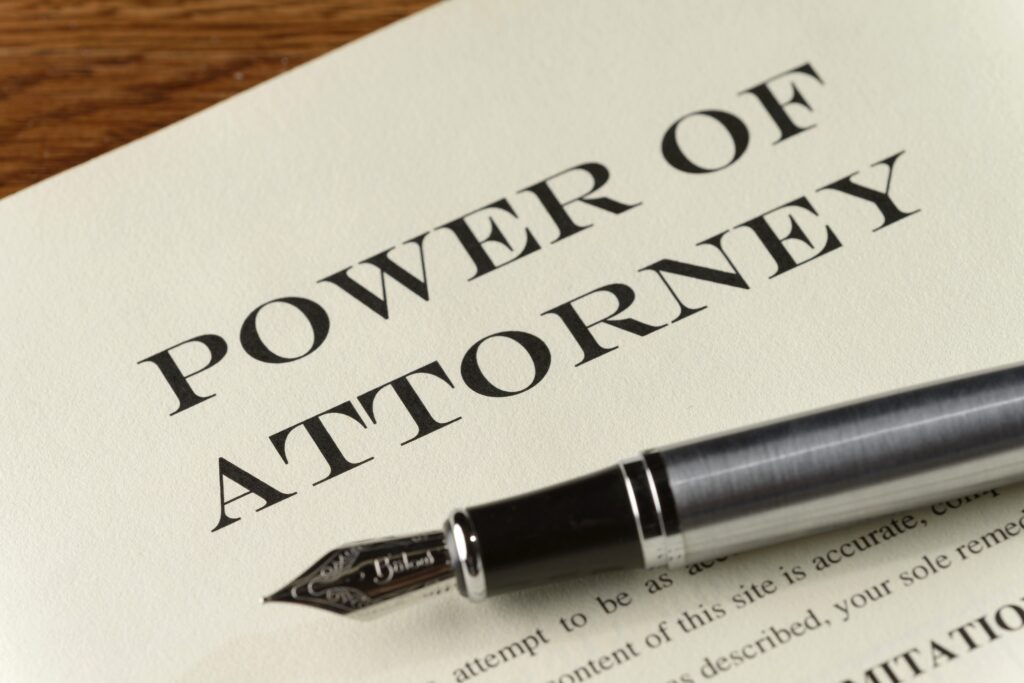
When I was 15, I was in a car accident that hospitalized me for 6 weeks. Because I was a minor, the doctors treating me could legally communicate freely with my parents. Had I been 18, the doctors could not have spoken with my parents without a power of attorney in place. Our firm’s strong belief is that anyone over the age of eighteen years of age should have a power of attorney for health and property, because of unforeseen accidents like mine.
The consequence for not having a POA can be severe. If you lose competency, your loved one may be forced to open a guardianship on your behalf. Guardianship is a court action that is expensive, and often creates a situation that requires a judge’s approval for all medical, financial, and living decisions. By not signing a POA you may be transferring your important health care and financial decisions to a court and person (the judge) you probably don’t know.
A power of attorney (POA) is written document granting someone else permission to act on your behalf. If you sign a power of attorney, you are called the principal and the person you designate to act on your behalf is called the agent. Although the document itself is called a power of attorney, sometimes people also refer to the person they appoint to be their agent as “my power of attorney.”
You may have heard different phrases for powers of attorney such as “financial,” “durable,” “healthcare” or “proxy.” Ultimately, there are a number of different powers that can be granted to an agent that fall into two categories: health and property. We will discuss the main differences between a Power of Attorney for Health versus a Power of Attorney for Property and why each are important.
Power of Attorney for Health
A POA for health form allows you to nominate a person to make health care decisions if you are unable to do so, usually due to sickness or incapacity. A POA for health may authorize your agent to:
- Make health care decisions;
- Decide in favor or against admission into certain health care facilities;
- Decide the type of medical treatment you receive;
- Talk with healthcare providers about your condition; and/or,
- Talk with your loved ones to help come to a decision.
You may limit the powers you grant to your agent. For example, if a certain procedure is against your moral or religious beliefs, you can mandate that your agent does not utilize that procedure. The selection of your agent should be someone you trust with ultimate decision-making authority for your treatment decisions once you are incapacitated. It is usually a family member or trusted friend.
Power of Attorney for Property
A POA for property is a form that allows the principal to nominate a person to make financial decisions on their behalf. An agent under a POA for property has powers over the grantor’s financial affairs. Unless specifically stricken on the form, a POA for property has access to:
- Real estate transactions;
- Financial institution transactions;
- Stock and bond transactions;
- Tax matters;
- Business operations; and,
- Other financial affairs listed on the POA form.
You may limit the powers you grant to your agent by striking them from the form. Additionally, a POA for property may exercise the powers given to them throughout your lifetime; however, you can limit this time frame if specified.
Have any more questions?
If you have questions about powers of attorney or the estate planning process, please contact our office at Ph: (312) 583-9430 or email admin@bc-lawyers.com
